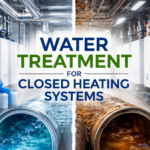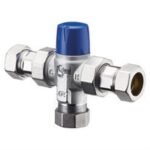Understanding Legionella
Legionella bacteria naturally occur in freshwater environments but become problematic when they grow in man-made water systems like hot tubs. The bacteria multiply in warm water, particularly between 20°C and 45°C, making hot tubs an ideal breeding ground. Inhalation of contaminated water droplets or aerosols can lead to infection.
Why Hot Tubs Are High-Risk
Several factors contribute to the risk of Legionella in hot tubs:
– Temperature: Hot tubs are typically maintained at temperatures conducive to bacterial growth.
– Aerosol Generation: Jets and bubbling create aerosols that can carry bacteria into the air.
– Organic Material: Users introduce organic matter like skin cells and oils, feeding bacterial growth.
– Inadequate Maintenance: Without regular cleaning, biofilms can form, protecting bacteria from sanitizers.
Legal Responsibilities for Commercial Operators
In the UK, commercial hot tub operators must adhere to Health and Safety Executive (HSE) guidelines, including:
– Risk Assessment: Identifying and evaluating potential Legionella risks.
– Control Measures: Implementing procedures to minimise risks, such as regular cleaning and disinfection and ongoing chemical treatments.
– Monitoring: Routine testing of water quality to ensure effectiveness.
Failure to comply can result in legal action and significant fines.
Best Practices for Hot Tub Maintenance
To reduce the risk of Legionella:
– Regular Cleaning: Clean and disinfect the hot tub as per manufacturer’s instructions.
– Water Replacement: Change the water regularly, typically every 2–3 months.
– Filter Maintenance: Clean and replace filters as recommended.
– Chemical Balance: Maintain appropriate disinfectant and pH levels.
– Professional Testing: Periodic Legionella sampling, especially in commercial settings.
Conclusion
While hot tubs provide comfort and enjoyment, they require diligent maintenance to ensure safety. Understanding the risks associated with Legionella and implementing proper control measures can prevent serious health issues. For commercial operators, compliance with legal guidelines is not only a regulatory requirement but also essential for guest safety.
For more guidance, refer to the HSE’s official publication: https://www.hse.gov.uk/pubns/books/hsg282.htm













Leave a Reply
You must be logged in to post a comment.